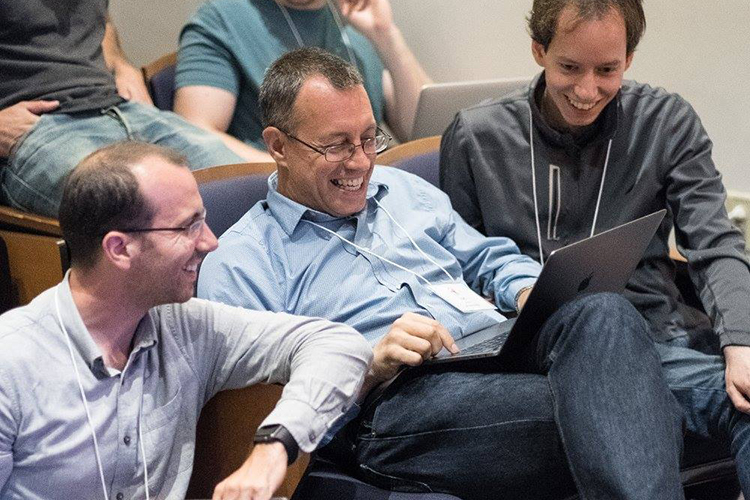$10 million for Berkeley RISELab’s AI research
The project will enable artificial intelligence systems to make decisions in areas of our everyday lives.

February 27, 2018
The National Science Foundation today announced that UC Berkeley’s RISELab has been awarded an Expeditions in Computing award, providing $10 million in funding over five years to enable game-changing advances in real-time decision making technologies. The award was one of three announced today for research teams pursuing large-scale, far-reaching and potentially transformative research in computer and information science and engineering.
RISELab’s award will be used to develop technology for an era in which artificial intelligence systems will make decisions that will play an increasingly central role in people’s lives in areas such as healthcare, transportation and business. For example, the researchers say that these systems will revolutionize healthcare through early identification of patients at risk, cell-level diagnosis and treatment using nanoprobes, and robotic surgery. These systems could also reduce traffic congestion and help eliminate fatalities by powering autonomous vehicles and unmanned drones, or make businesses safer by detecting and defending in real-time against financial fraud and internet attacks.
“In order to fulfill this vision, a new generation of AI systems is needed to power mission-critical applications where human safety and well-being are at stake, and can work in adversarial environments that change continually and unexpectedly,” wrote the research team, led by Ion Stoica, director of RISELab and professor in the Department of Electrical Engineering and Computer Sciences at Berkeley, in their project description.
Four other Berkeley EECS faculty members are co-leads of the Expeditions project: Michael Jordan (also a professor of statistics), Joseph Hellerstein, Raluca Ada Popaand Joseph Gonzalez.
RISELab’s Expeditions project will work on building AI decision systems to address these challenges by developing open source platforms, tools and algorithms for real-time, intelligent, secure and explainable decisions, which is what the RISE acronym stands for. The project will also empower a large community of pioneers to build innovative applications and solutions, as well as broaden participation in research activities by allowing students and researchers across many disciplines to contribute.
“The Expeditions projects being awarded today are not only taking on challenging research problems in computer and information science and engineering, but they are also offering the potential to yield tremendous benefits to multiple sectors of our society,” said Jim Kurose, NSF assistant director for Computer and Information Science and Engineering. “We are delighted to be able to fund these projects, which represent the largest single investments in our portfolio.”
Read the full announcement at the National Science Foundation